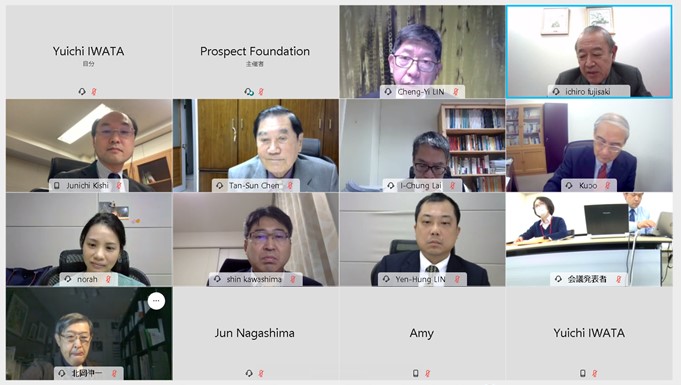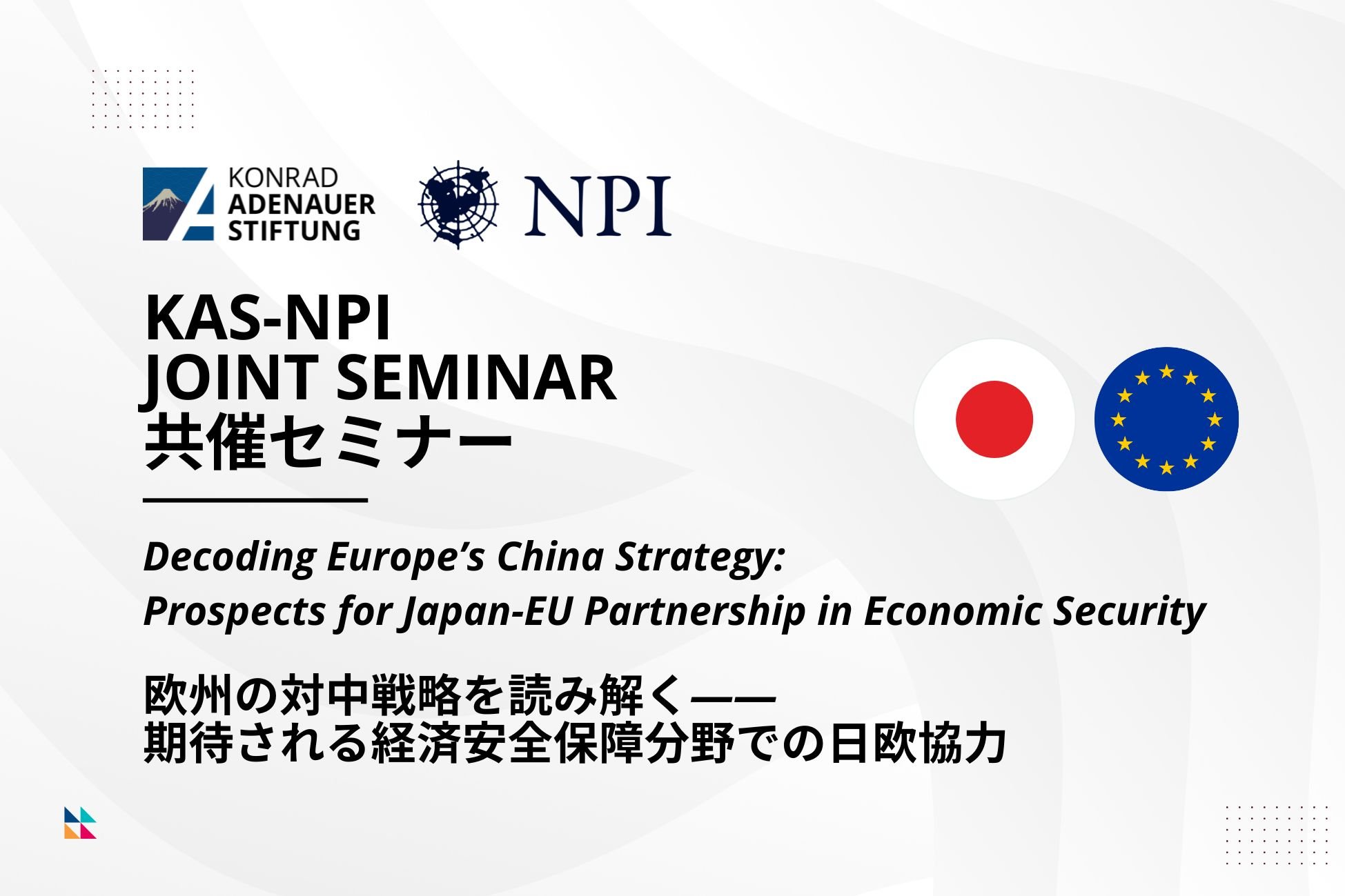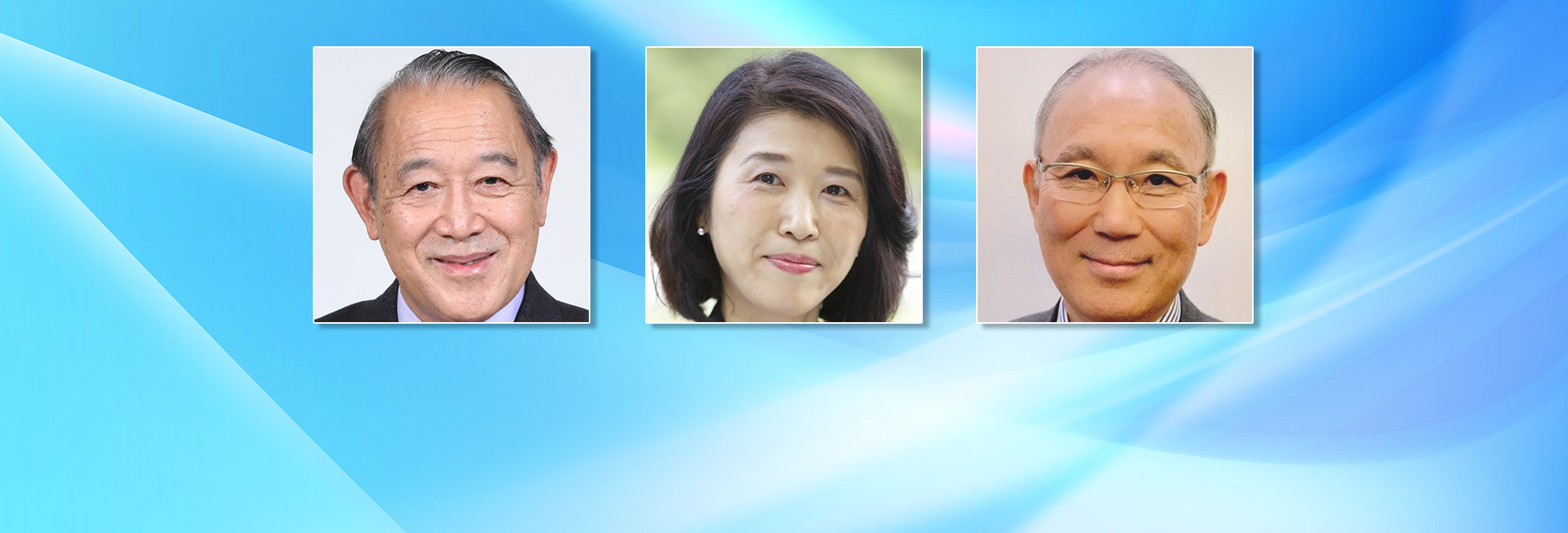2020/11/30
Japan-Taiwan Dialogue 2020
The Nakasone Peace Institute (NPI), in collaboration with the Prospect Foundation in Taiwan, hosted the 18th Japan-Taiwan Dialogue 2020 via online video conference.
The dialogue lasted for nearly two hours, and featured intense, multifaceted and in-depth discussions.
For an overview, please see below:
<Overview>
1 Date & Time: Friday, November 27, 2020 16:00-18:00 (JST: UTC+9)
2 Venue: Online Video Conferencing
3 Main participants: * in alphabetical order by surname
<Japan>
Amb. Ichiro FUJISAKI: President, NPI
Dr. Shin KAWASHIMA: Professor, Univ. of Tokyo / Senior Fellow, NPI
Dr. Shinichi KITAOKA: President, JICA / Chief Research Adviser, NPI
Dr. Fumiaki KUBO: Professor, Univ. of Tokyo / Exec. Director of Research, NPI
<Taiwan>
Dr. Tan-Sun CHEN: Chairman, The Prospect Foundation
Dr. I-Chung LAI: President, The Prospect Foundation
Dr. Cheng-Yi LIN: Research Fellow, Institute of European and American Studies, Academia Sinica
Dr. Yen-Hung Lin: Assistant Research Fellow, Institute for National Defense and Security Research
4 Agenda and key issues:
<Session 1: Taiwan-US-Japan-China Relations after the US Presidential Election>
A wide range of discussions took place in light of the results of the U.S. presidential election and possible trends in the U.S.-China conflict, Hong Kong, and other areas.
By Taiwan side, the following points of interest were raised: The possible direction of the Taiwan-US relationship head in under a Biden administration, The Biden administration to be assessed for the possibility of a major shift toward easing tensions with China changed from Trump administration's positive about arms and high-level exchanges, Tensions in the Taiwan Strait, and The direction of priority of cyber security and Indo-Pacific security.
From the Japanese side, on the other hand, there were four points of interest in the Biden era of relations with China and Taiwan: the possibility of reviewing tariff sanctions against China, while placing more emphasis on cooperation with traditional allies and international organizations, the tougher stance taken by Secretary of State nominee Blinken toward China, and the support of the Democratic-led House of Representatives for a tougher stance toward China.
In the discussion that followed, the Japanese side raised the following issues: The possible direction to take if there is a disagreement in the U.S. presidential administration, Congress, Pentagon, and Taiwan's possible action if Washington takes a very soft stance toward Beijing. Both sides exchanged views on these issues.
Conversely, the Taiwanese side raised such issues as the way of U.S. managing its cooperation with Taiwan and Southeast Asia in the context of strong domestic politics and diversity, and Taiwan seeing this as a good opportunity with taking action to lead in East Asia. Both sides also exchanged views on them.
<Session 2: Taiwan-Japan Relations in the Post-COVID-19 Era>
From the Japanese side, a report on the two main points of focus of Japan-Taiwan relations was presented: The U.S.-China Conflict under and after the Corona and Taiwan, and Recent Development of Japan-Taiwan Relations and Future Possibilities.
From Taiwan's side, there was a report on The Fight Against COVID-19 and Taiwan-Japan Relations, Taiwan-Japan Relations in Economic Cooperation, and Taiwan-Japan Relations in Security Cooperation.
In the ensuing discussion, views were exchanged on such issues as the possibility of doing more in collaboration between Japan, Taiwan, and the Pacific Rim in the global medical initiative for the corona crisis, and the impact of China's intention to join the Trans-Pacific Partnership (TPP) and the impact of India's failure to join the RCEP on economic cooperation.






